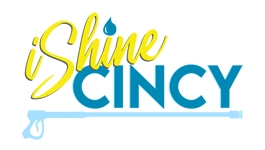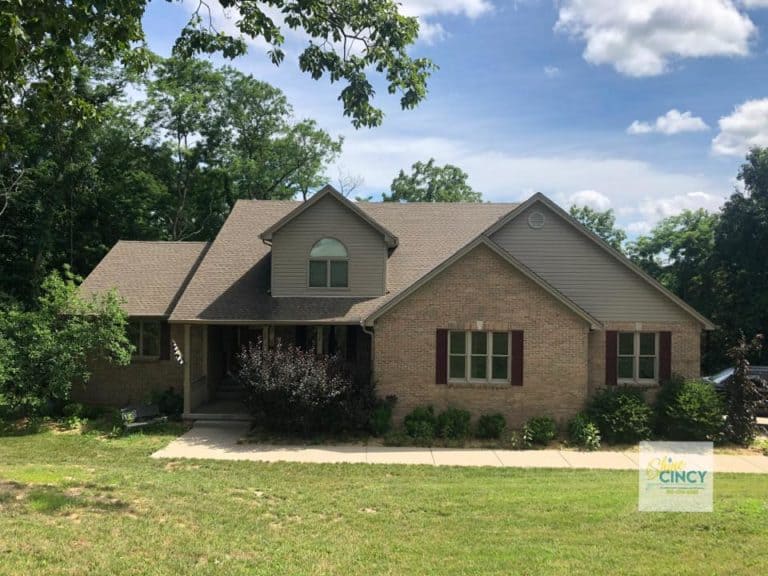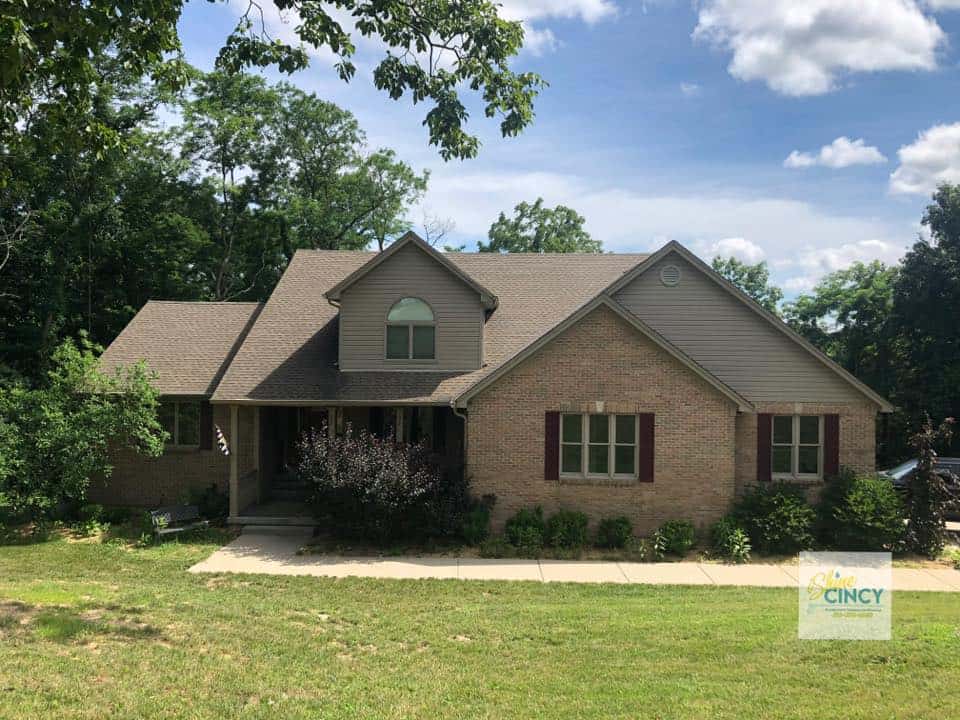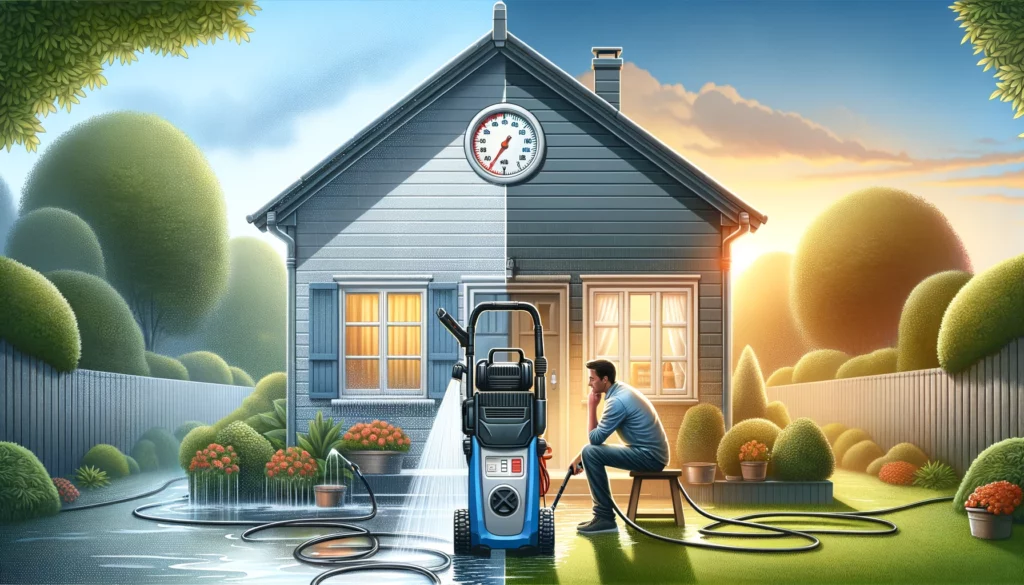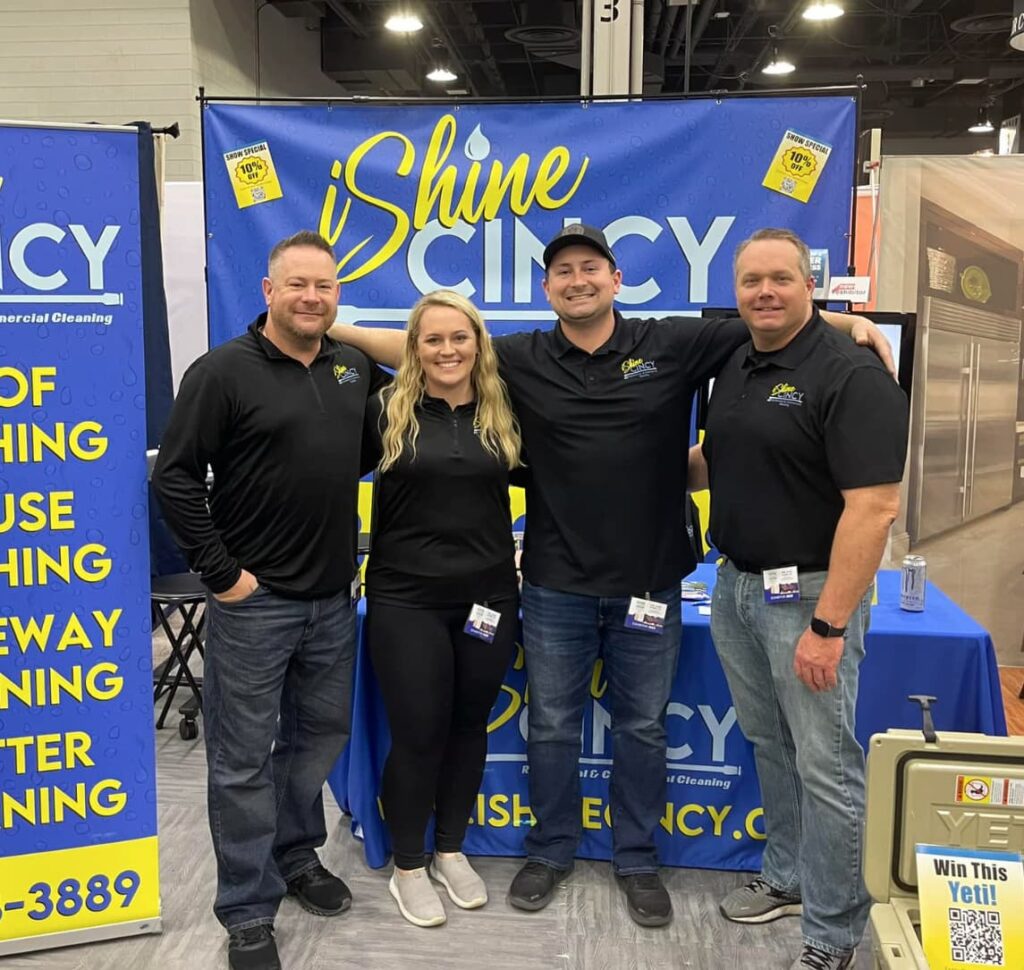For many homeowners, roof maintenance is an essential aspect of protecting their property and preserving curb appeal. One lesser-known but highly effective method to keep your roof clean and in its best condition is soft washing. So, what is roof soft washing? And how does it differ from traditional roof cleaning techniques? Allow me to elucidate on this gentle yet powerful approach that safely removes grime, mold, algae, and dirt from your roof without causing any damage.
Key Takeaways
- Soft washing is a gentle, low-pressure washing technique for cleaning roofs.
- It effectively removes grime, mold, algae, and dirt without harming roofing materials.
- Soft washing is superior to traditional roof cleaning due to its safety and effectiveness.
- Eco-friendly and biodegradable cleaning solutions are often used in soft washing.
- Regular roof soft washing can extend the lifespan of roofing materials and improve a home’s curb appeal.
- Professional roof cleaning services like iShine Cincy can help preserve your roof’s integrity and appearance.
Introduction to Roof Soft Washing
The way we approach roof cleaning has significantly changed over the years. Traditional roof cleaning methods often use high-pressure washing techniques that can be harsh on roofing materials and may cause damage. However, soft washing has emerged as a preferred alternative for roof maintenance due to its effectiveness and safety. In this section, we’ll provide a brief overview of traditional roof cleaning methods versus soft washing and discuss the benefits of choosing soft washing services for your roof maintenance needs.
Soft washing has revolutionized the roof cleaning industry by combining the use of low-pressure washing with a mixture of cleaning solutions. This method not only cleans but also sanitizes roofs, making it an all-encompassing service for homeowners seeking meticulous care for their roofing.
| Traditional Roof Cleaning Methods | Soft Washing |
|---|---|
| Often uses high-pressure washing techniques that can damage roofing materials | Low-pressure washing is gentle on roofing materials and avoids potential damages |
| May require harsh chemicals that could harm the environment | Often uses eco-friendly and biodegradable cleaning solutions |
| Could lead to mold, algae, and grime being left behind | Effectively removes contaminants and provides long-lasting cleanliness |
As evident from the table, soft washing offers numerous advantages compared to traditional roof cleaning methods, such as reduced risk of roof damage and a more efficient cleaning process. Our roof maintenance experts at iShine Cincy utilize this innovative method to ensure optimal results for your roofing needs.
“The benefits of soft washing are clear. We’ve seen first-hand how our clients are amazed by the difference this cleaning method makes for their roofs.”
In summary, the introduction to roof soft washing has resulted in a safer, more effective way to care for your roof. By choosing soft washing services, you can rest assured that your roof will be thoroughly cleaned and sanitized for a healthier and more aesthetically pleasing home.
The Science Behind Soft Washing for Roofs
Soft washing for roofs combines a low-pressure washing technique with chemical solutions, designed to balance effectiveness and safety. This section explores the science behind this method, focusing on the low-pressure technique and the chemical solutions used in soft washing. Key factors addressed include the importance of protecting roofing materials, ensuring eco-friendly cleaning practices, and targeting common roof contaminants.
Understanding the Low-Pressure Technique
The low-pressure washing technique employed in soft washing aims to minimize the risk of damaging roofs, such as shingles or tiles. Unlike traditional pressure washing, which can cause harm to roofing materials, soft washing proves to be a gentle yet powerful cleaning method. Its low-pressure approach effectively dislodges and removes built-up grime, mold, algae, and dirt without causing abrasions or wear.
Soft washing – a gentle, low-pressure cleaning process that effectively cleans your roof without risking damage to its components.
In soft washing, water pressure levels are significantly lower than in traditional pressure washing. This reduction in pressure allows for a more controlled cleaning process, giving technicians the ability to clean fragile areas of your roof while limiting the chance of causing unnecessary harm. As a result, soft washing represents a practical alternative for homeowners looking to preserve their roof’s appearance without exposing it to high-pressure damage risks.
Chemical Solutions Used in Soft Washing
Soft washing relies on chemical solutions that work in harmony with the low-pressure washing technique. These solutions are specifically formulated to target common roof contaminants such as moss, algae, and mold. Furthermore, many of these solutions prioritize eco-friendly and biodegradable components, ensuring that the roof cleaning process remains environmentally responsible.Targeted, eco-friendly chemical solutions married with low-pressure washing provide a powerful yet gentle cleaning experience for your roof.
- Algaecides and fungicides: Utilized in removing algae and fungi from the roof surface, these chemicals work by inhibiting the growth and spread of these microorganisms.
- Surfactants: Effective in loosening built-up dirt and grime, surfactants work by reducing surface tension and allowing the cleaning solution to penetrate between the dirt and the roof material.
- Mildewcides: Designed to combat the common problem of mildew growth, these chemicals work by stopping the proliferation of molds and mildews on your roof surface.
Each chemical solution used in the soft washing process has a unique role to play in addressing specific roof contaminants. In addition, suppliers carefully select these solutions to ensure that they are not only effective but also safe for your roof and the surrounding environment.
| Chemical Solution | Purpose in Soft Washing | Eco-Friendly? |
|---|---|---|
| Algaecides and Fungicides | Removal of algae and fungi | Yes |
| Surfactants | Loosening of dirt and grime | Yes |
| Mildewcides | Elimination of mildew growth | Yes |
In conclusion, the science behind soft washing for roofs revolves around balancing effectiveness and safety. By using a low-pressure washing technique and carefully formulated chemical solutions, soft washing serves as an efficient and eco-friendly roof cleaning option. Homeowners benefit from a clean, sanitized roof that maintains its integrity and appearance without the risks associated with traditional pressure washing methods.
Advantages of Soft Washing Over Traditional Methods
Roof soft washing offers a myriad of advantages over traditional roof cleaning methods like pressure washing. In this section, we will explore the key benefits of roof soft washing, including its ability to clean without causing harm to roofing materials, effectiveness against a variety of contaminants, and its long-lasting clean, which can prevent future growth of algae and mold.Protects Roofing Materials
One of the significant advantages of roof soft washing is that it is gentle on your roofing materials. The low-pressure washing technique ensures that there’s no damage to shingles, tiles, or other roofing materials, preserving the integrity and lifespan of your roof. Traditional pressure washing, on the other hand, can cause significant harm to these materials, leading to expensive repairs and reduced roof longevity.
“Roof soft washing is a game-changer. Not only did it effectively clean my roof, but it also prevented any damage to my shingles. My house looks amazing!” – Sarah M., satisfied homeowner
Effectiveness Against Various Contaminants
Roof soft washing is highly effective against a wide range of contaminants, such as algae, moss, mold, and mildew, which are commonly found on roofs. The combination of low-pressure washing and specialized cleaning solutions ensures that these contaminants are effectively removed, leaving your roof clean and free of damage-causing organisms.
- Algae
- Moss
- Mold
- Mildew
Long-Lasting Results
Another significant benefit of roof soft washing is that it provides long-lasting results. The cleaning solutions used in soft washing processes not only remove contaminants but also inhibit their future growth. This means that your roof will stay cleaner for a more extended period, reducing the need for frequent cleanings and maintenance.
| Roof Cleaning Method | Protection of Roof Materials | Effectiveness Against Contaminants | Longevity of Clean |
|---|---|---|---|
| Roof Soft Washing | Yes | High | Long-lasting |
| Traditional Pressure Washing | No | Variable | Shorter lifespan |
In summary, the advantages of roof soft washing are clear – it provides a gentle, effective, and long-lasting cleaning solution for homeowners. By choosing roof soft washing over traditional methods, you can protect your roof from damage and prevent the growth of harmful contaminants, maintaining the health and appearance of your home’s most essential component.
Identifying the Need for Roof Soft Washing Services
Roofs are the primary defense for homes against the elements and deserve routine inspections for potential issues. By identifying early warning signs and taking appropriate action, homeowners can prevent costly repairs, reduce deterioration, and maintain their property’s aesthetic appeal. Here are some common indicators that suggest your roof may need professional soft washing services.
- Visible stains: If unsightly discolorations or dark streaks mar your roof’s surface, it’s a sign that algae, mildew, or mold could be growing and spreading. Left unaddressed, these organic materials can damage roofing components and decrease your home’s curb appeal.
- Moss growth: Moss can thrive in damp, shady environments, causing it to accumulate on roofs. This greenish growth not only reduces visual allure, but it can also cause shingles to separate, allowing water to penetrate your roofing structure.
- Presence of mold and mildew: Similar to moss growth, mold and mildew thrive in damp conditions and can cause structural decay. Identifying mold and mildew on your roof could indicate compromised ventilation or poor water drainage systems, requiring intervention from an expert.
“Just a few years ago, we faced an alarming amount of mold and mildew growth on our roof. If it hadn’t been for the professional inspection, we wouldn’t have caught the issue in time. Soft washing services not only eradicated that problem but also restored the original beauty of our home.”
| Indicator | Description | Potential Impact |
|---|---|---|
| Visible stains | Discolorations or dark streaks caused by algae, mildew, or mold growth | Damage to roofing materials, reduced curb appeal |
| Moss growth | Greenish growth often found in damp, shaded areas | Separation of shingles, water penetration, structural damage |
| Mold and mildew | Organic matter that thrives in moist conditions | Structural decay, compromised ventilation or water drainage systems |
Ignoring these warning signs can lead to further complications and increased expenses. Investing in professional soft washing services tackles these issues at their root and extends the life of your roofing materials, guaranteeing a safe and visually appealing home.
Benefits of Roof Soft Washing for Homeowners
Roof soft washing provides an array of outstanding benefits that contribute to maintaining and prolonging the overall health and well-being of your home. By investing in the professional roof cleaning and soft washing for roofs, homeowners can reap the rewards of extended roof longevity, eco-friendly cleaning, and effective stain removal.
Extending Roof Lifespan
One of the main advantages of regular roof soft washing is extending the lifespan of your roof. The removal of harmful elements such as mold, algae, and lichen prevents decay, rot, and premature aging of roofing materials. The following table showcases how soft washing contributes to longer roof life:
| Roof Contaminants | Effects on Roof | Role of Soft Washing |
|---|---|---|
| Mold | Breaks down roofing materials, causing leaks | Eliminates mold and prevents regrowth |
| Algae | Discolors roof, retains moisture, damages shingles | Removes algae and inhibits future growth |
| Lichen | Erodes roofing materials, causing damage | Erases lichen and protects against recurrence |
Eco-Friendly Roof Cleaning
Soft washing is an eco-friendly roof cleaning alternative to traditional pressure washing. It uses less water and often employs green cleaning solutions that minimize the environmental footprint. Biodegradable and non-toxic chemicals ensure that soft washing effectively removes contaminants while preserving the surrounding ecosystem.
Soft washing is a responsible and environmentally friendly way to maintain your roof while contributing to the overall wellness of our planet.
Effective Roof Stains Removal
Roof soft washing is particularly effective in removing common roof stains caused by algae, lichen, and moss. The transformation homeowners can expect to witness is remarkable, as soft washing restores the roof’s natural beauty and enhances the curb appeal of their property.
- Algae stains: Dark streaks and discoloration on shingles
- Lichen stains: Greenish, crusty growths on roof surfaces
- Moss stains: Thick, green organic matter on roofs
By investing in professional roof cleaning and soft washing, homeowners can trust that their roofing will be free of unsightly and damaging stains, ensuring a pristine and visually striking appearance for their home.
The Role of Professional Roof Cleaning in Maintenance
Maintaining a clean and healthy roof is essential to protect your home and prevent costly damages. As part of a comprehensive roof maintenance plan, regular cleaning carried out by trained professionals plays a vital role. Understanding the benefits and scope of professional roof cleaning, roof maintenance, and soft washing services can help homeowners make the right choice for their property.
Roofs bear the brunt of constant exposure to harsh weather conditions, organic particles, and other pollutants. Over time, dirt, algae, moss, lichen, and other contaminants accumulate on the roof, affecting its appearance and integrity. Roof cleaning tackles these issues head-on, preventing potential damage and prolonging the roof’s lifespan.
“A well-maintained roof can last up to 50% longer compared to a roof that isn’t properly maintained.”
By enlisting the expertise of professional roof cleaners, you’ll receive:
- Thorough inspections to identify and address potential problems
- Customized cleaning solutions tailored to your roof’s unique requirements
- Safe and efficient cleaning methods to preserve your roof’s integrity
- Long-lasting results that enhance your home’s curb appeal
| Professional Roof Cleaning Tasks | Benefits for Homeowners |
|---|---|
| Debris Removal | Prevents water damage and extends the life of the roof |
| Algae, Moss, and Lichen Elimination | Enhances the roof’s appearance and prevents structural deterioration |
| Addressing Damaged or Loose Shingles | Avoids potential leaks and costly repairs |
Professional soft washing services provide a gentle yet effective cleaning solution for various types of roofing materials. Homeowners can trust skilled roof cleaning teams to use biodegradable chemicals, low-pressure techniques, and industry expertise to restore the roof’s appearance and functionality.
In conclusion, professional roof cleaning plays an indispensable role in roof maintenance. By investing in regular soft washing services, homeowners can preserve their roof’s condition, save money on avoidable repairs, and enjoy the peace of mind knowing that their property is well-protected.
Common Misconceptions About Roof Soft Washing
As with many services, there are several myths and misconceptions around roof soft washing that have led to confusion and misinterpretation. To educate homeowners about this effective and low-pressure cleaning technique, let’s discuss some of the most common misconceptions and clarify the truth for anyone considering roof soft washing services.
- Roof soft washing is the same as pressure washing
Roof soft washing and pressure washing differ in their technique, pressure level, and the cleaning solution used. While pressure washing uses high water pressure to remove dirt and grime, roof soft washing operates at a gentler pressure with a specialized cleaning solution to break down contaminants. Thus, soft washing is a safer approach, which reduces the risk of damaging roof materials.
- Soft washing can damage the roof
When performed by trained professionals, roof soft washing does not pose a significant risk of damage to roofing materials. The low-pressure technique preserves the integrity of shingles, tiles, and other roof components, ensuring a comprehensive clean without the stress that high-pressure washing can cause. Reputable roof cleaning companies use professionally formulated cleaning solutions to further prevent potential damage to the roof surface.
- Soft washing is just a temporary solution
Soft washing is more than just a quick fix. By targeting and exterminating harmful organisms such as algae, mold, and moss, soft washing helps prevent their regrowth for extended periods of time. The precise formulation of cleaning solutions and low-pressure techniques can ensure that your roof remains clean and protected for much longer than conventional cleaning methods.
Contrary to these misconceptions, roof soft washing is an effective, gentle, and long-lasting method to maintain your roof’s appearance and health.
In conclusion, it’s essential to dispel misconceptions about roof soft washing and understand the benefits it provides for roof maintenance. By clearing away some of these common myths, homeowners will be more informed when choosing the right roof cleaning method to protect their home and improve curb appeal.
Roof Soft Washing: Step by Step Process
The roof soft washing process follows a detailed and meticulous set of steps to ensure a thorough, safe, and effective cleaning for your home’s roof. Let’s examine each step in this process so you know exactly what to expect when hiring professionals for soft washing services.
- Pre-Inspection and Roof Assessment
Before the soft washing begins, a professional technician will conduct a thorough pre-inspection of your roof’s condition. They will identify the areas requiring cleaning and determine the appropriate chemicals to use based on the specific contaminants present, such as algae, moss, or lichen.
- Preparation and Protection of Surrounding Areas
The technician will ensure that the surrounding areas, including plants, windows, and surfaces adjacent to the roof, are properly protected from any potential damage during the cleaning process. This may involve covering plants with tarps or using temporary shields for windows.
- Mixing the Cleaning Solution
Using the information obtained during the pre-inspection, the technician will prepare a customized cleaning solution. The concentration of the chemicals used will depend on the specific stains and contaminants found on your roof. Biodegradable and eco-friendly solutions are often preferred for their safety and effectiveness.
- Applying the Cleaning Solution
After mixing the appropriate solution, the technician will apply it to the roof using a low-pressure sprayer. This allows for even distribution and penetration of the chemicals, giving them ample time to work on the contaminants and stains.
Note: The low-pressure technique offers several benefits, including a gentle approach that reduces risks of damage to your roof while still being highly effective in removing buildup.
- Dwelling Time
Once the cleaning solution has been applied, it needs some time – typically between 15 to 30 minutes – to break down and dissolve the dirt, mold, algae, and other contaminants on the roof. This period allows the chemicals to work their magic while minimizing the amount of agitation needed to remove the buildup.
- Rinsing the Roof
After the dwelling time, the technician will use a low-pressure rinsing method to remove the cleaning solution and dislodged contaminants from the roof. This process is as efficient as it is gentle on your roof’s surface, ensuring no damage occurs to the shingles or tiles.
- Post-Inspection and Cleanup
Upon completion of the rinsing process, the technician will conduct a final inspection to ensure that all surfaces have been thoroughly cleaned and that there are no remaining contaminants. They will also remove any protective measures taken earlier and leave the work area clean and free of debris.
| Step | Description |
|---|---|
| 1. Pre-Inspection | Assess the roof’s condition and determine the appropriate cleaning chemicals |
| 2. Preparation | Protect surrounding areas such as plants and windows from potential damage |
| 3. Mixing | Prepare a customized cleaning solution based on the specific roof contaminants |
| 4. Application | Apply the cleaning solution using a low-pressure sprayer |
| 5. Dwelling Time | Allow the cleaning solution to work its magic on the stains and contaminants |
| 6. Rinsing | Use a low-pressure rinsing method to remove the cleaning solution and dislodged buildup |
| 7. Post-Inspection | Perform a final inspection and clean up the work area |
This step-by-step outline of the roof soft washing process demonstrates the attention to detail and thoroughness employed by professionals in this field. By understanding what soft washing entails, you can further appreciate the benefits and effectiveness of this innovative roof cleaning technique.
Why Choose iShine Cincy for Your Roof Soft Washing Needs
As a homeowner, you want to entrust the care of your roof to a reliable and experienced company. iShine Cincy stands out in the industry as a top provider of roof soft washing services.
Experience and Expertise
With years of experience under our belt, iShine Cincy has honed the skills and techniques necessary to perform soft washing effectively and efficiently. Our team of highly-trained professionals continuously updates their knowledge and skills to provide the best service possible. By choosing iShine Cincy, you benefit from our expertise, experience, and dedication to customer satisfaction.
Testimonials and Proven Results
iShine Cincy has established a successful track record by delivering effective, reliable, and high-quality roof soft washing services. Our customer testimonials speak volumes about our work quality and excellence. Take a look at this quote from one of our satisfied clients:
“iShine Cincy did a fantastic job on our roof. Their team was efficient, and the results were astonishing. Our once dirty and stained roof now looks brand new, thanks to their soft washing service.”
Further proof of our proven results and customer satisfaction can be found in our collection of before-and-after images of roof cleaning jobs we’ve completed:
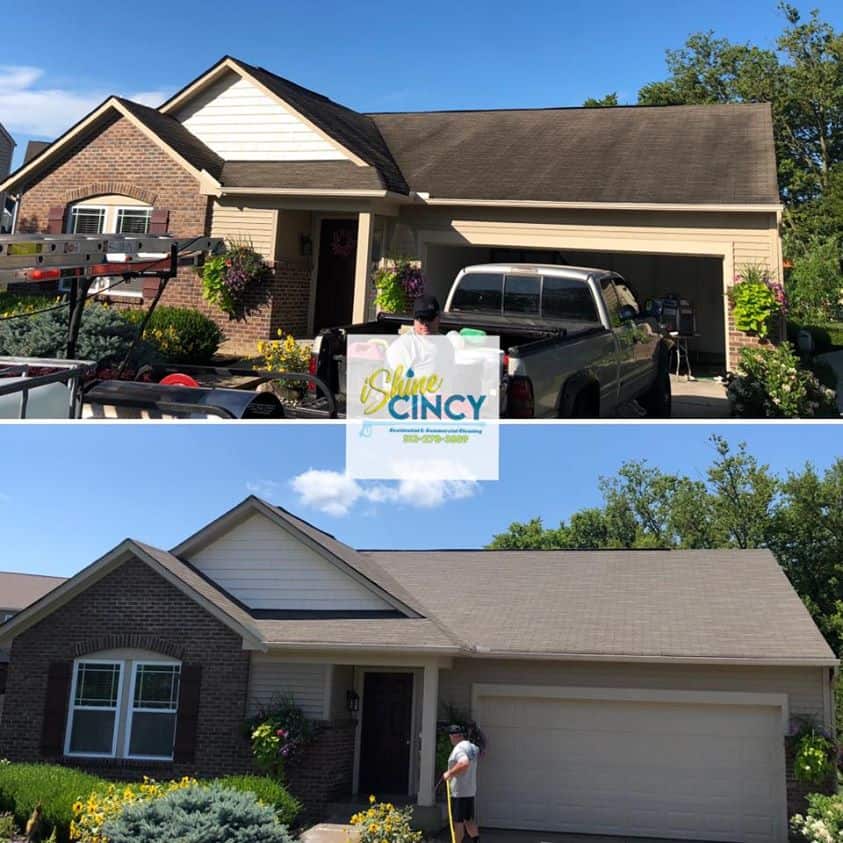
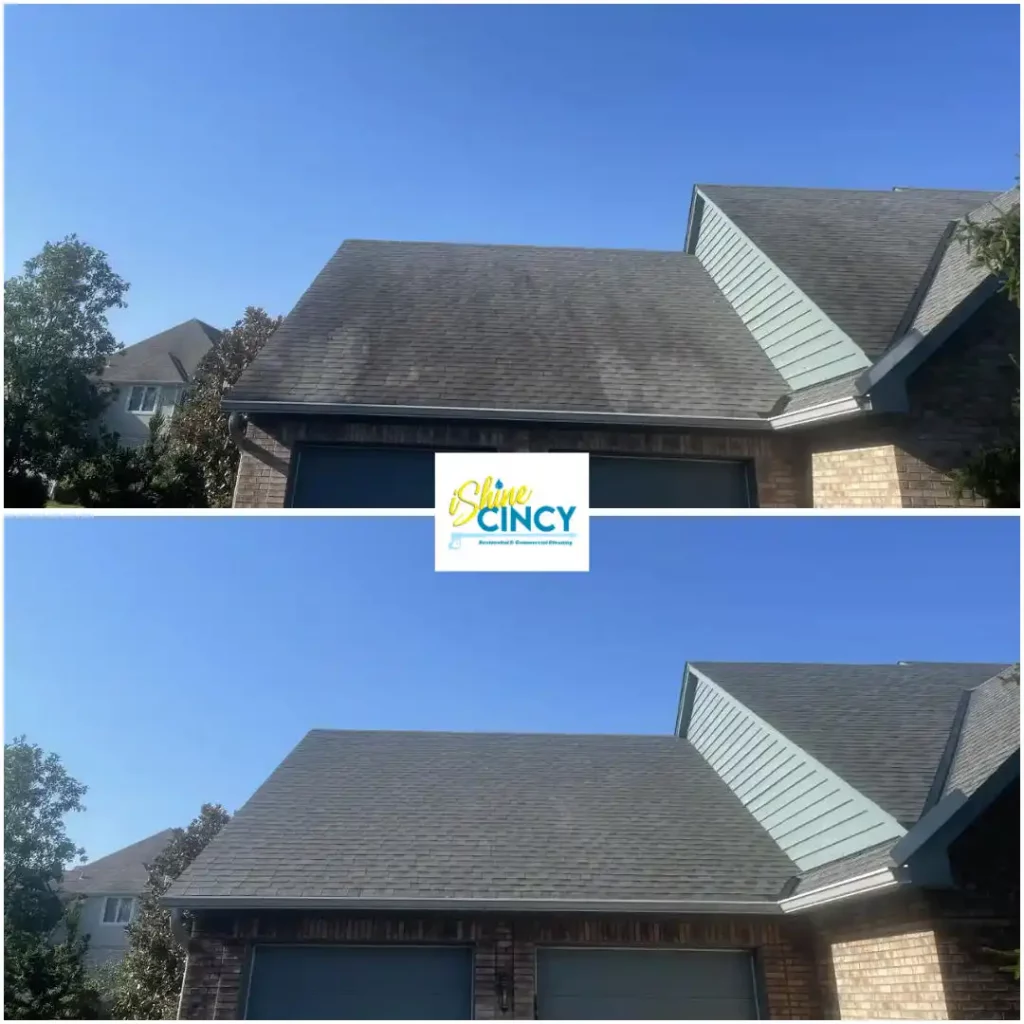
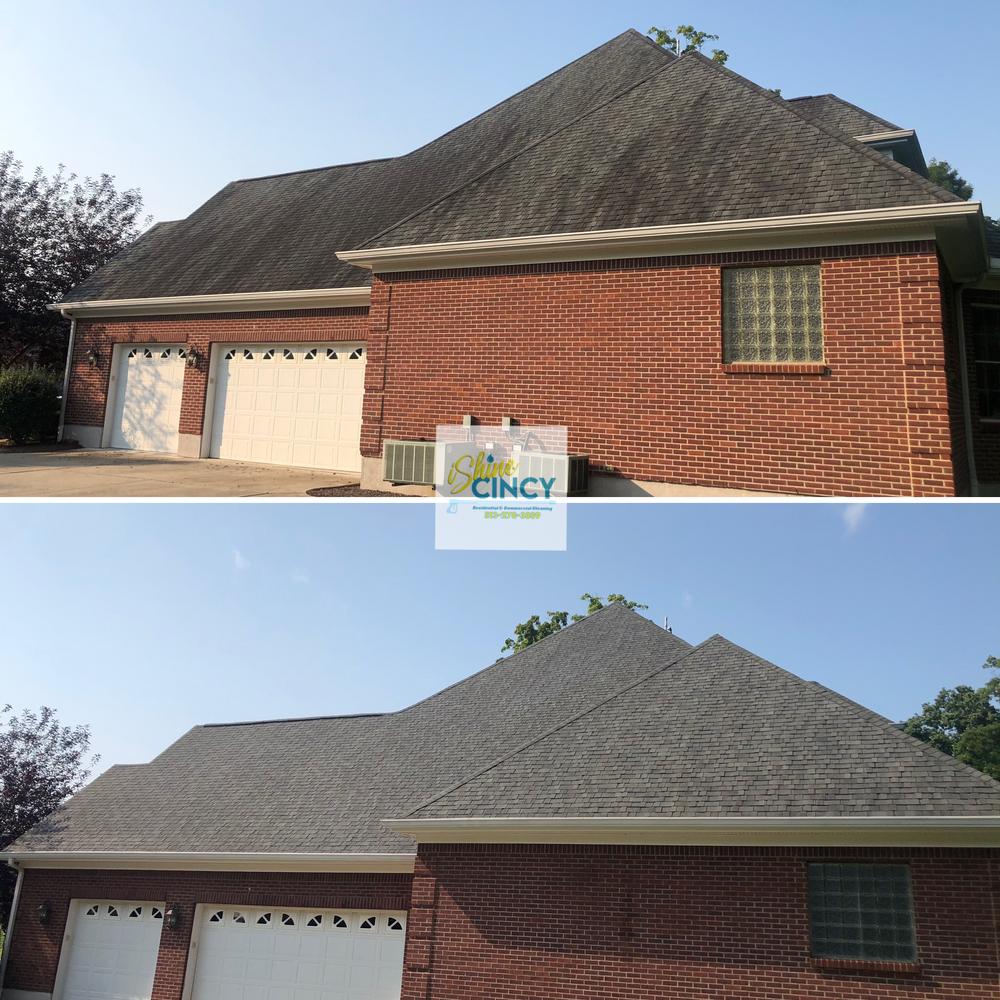
By entrusting iShine Cincy with your roof soft washing needs, you can be confident you’re choosing a reputable company that can deliver exceptional results. Our commitment to customer satisfaction and the proven outcomes of our roof cleaning services set us apart in our industry.
Conclusion
In summary, it is crucial to understand the concept and significance of roof soft washing in maintaining the health and aesthetics of a home’s roof. This innovative method of roof cleaning offers a gentle yet powerful approach to maintaining the integrity and cleanliness of your roof while minimizing the risk of damage. It also promotes eco-friendly practices, ensuring the health of your environment as well as your home.
Throughout this article, we have discussed the various benefits associated with adopting roof soft washing as a part of your regular home maintenance routine. With its ability to extend roof lifespans, remove unsightly stains, and protect the environment, soft washing serves as a comprehensive solution to your roofing needs.
When selecting a service provider for your roof soft washing needs, it is essential to choose a company that has a proven track record and a commitment to quality. iShine Cincy has consistently demonstrated their dedication to providing excellent service and achieving outstanding results for their clients. By trusting iShine Cincy to maintain your roof, you will not only enhance its appearance but also protect one of the most critical aspects of your home.
FAQ
What is roof soft washing?
Roof soft washing is a gentle cleaning method that uses low-pressure washing with a mixture of cleaning solutions to remove grime, mold, algae, and dirt from roofs without damaging the roof surface. It is an effective alternative to traditional high-pressure washing and helps maintain the integrity and appearance of the roof.
How is roof soft washing different from traditional roof cleaning methods?
Soft washing for roofs employs a low-pressure technique that reduces the risk of damage to roofing materials, such as shingles or tiles. Traditional cleaning methods often use high-pressure washing, which can cause unwanted harm to the roof’s surface. Soft washing not only cleans, but also sanitizes roofs, making it an all-inclusive service for homeowners seeking meticulous care for their roofing.
What chemical solutions are used in soft washing?
The chemical solutions commonly used in soft washing are biodegradable and environmentally friendly. These solutions typically target specific roofing contaminants, such as moss, algae, and mold, while being safe for the environment and the roofing materials.
What are the advantages of soft washing over traditional methods?
The advantages of roof soft washing include its ability to clean without causing harm to roofing materials, its effectiveness against a variety of contaminants, and its long-lasting clean, which can prevent future growth of algae and mold.
How can I identify the need for professional roof soft washing services?
Signs that indicate the need for professional roof soft washing services include visible stains, moss growth, or the presence of mold and mildew. These indicators can not only affect the aesthetic appeal of a home but also damage the roof’s structure if left unaddressed.
What are the benefits of roof soft washing for homeowners?
Roof soft washing can extend the lifespan of a roof by removing harmful elements that can lead to decay, rot, and premature aging of roofing materials. Additionally, soft washing is an eco-friendly roof cleaning option and is effective at removing common roof stains, such as those caused by algae, lichen, and moss. This can improve the curb appeal and overall value of a property.
What role does professional roof cleaning play in maintenance?
Professional roof cleaning plays a vital role in preventative maintenance. Regular cleaning can prevent damage and save homeowners on costly repairs. Trained technicians can also identify and solve roof issues, thus ensuring the longevity and stability of the roofing structure.
What are some common misconceptions about roof soft washing?
Common misconceptions about roof soft washing include it being the same as pressure washing or potentially damaging to the roof. In reality, soft washing is a gentle yet effective cleaning method that avoids the high-pressure risks associated with traditional pressure washing, ensuring the preservation of the roof’s integrity and appearance.
What is the step-by-step process of roof soft washing?
The roof soft washing process typically involves a pre-inspection, during which the roof’s condition is assessed. Afterward, cleaning solutions are applied to the roof’s surface. These solutions break down and dislodge grime and other contaminants on the roof. Finally, a thorough, low-pressure rinsing removes the cleaning solution, revealing a clean and revitalized roof surface.
